
What’s Love Gotta Do With Work?
Encouragement without clarity isn’t love. It’s avoidance. If love means fighting for the highest good of those you lead, then sometimes love looks like standards, boundaries, and hard conversations. Here’s why leadership alone isn’t enough.
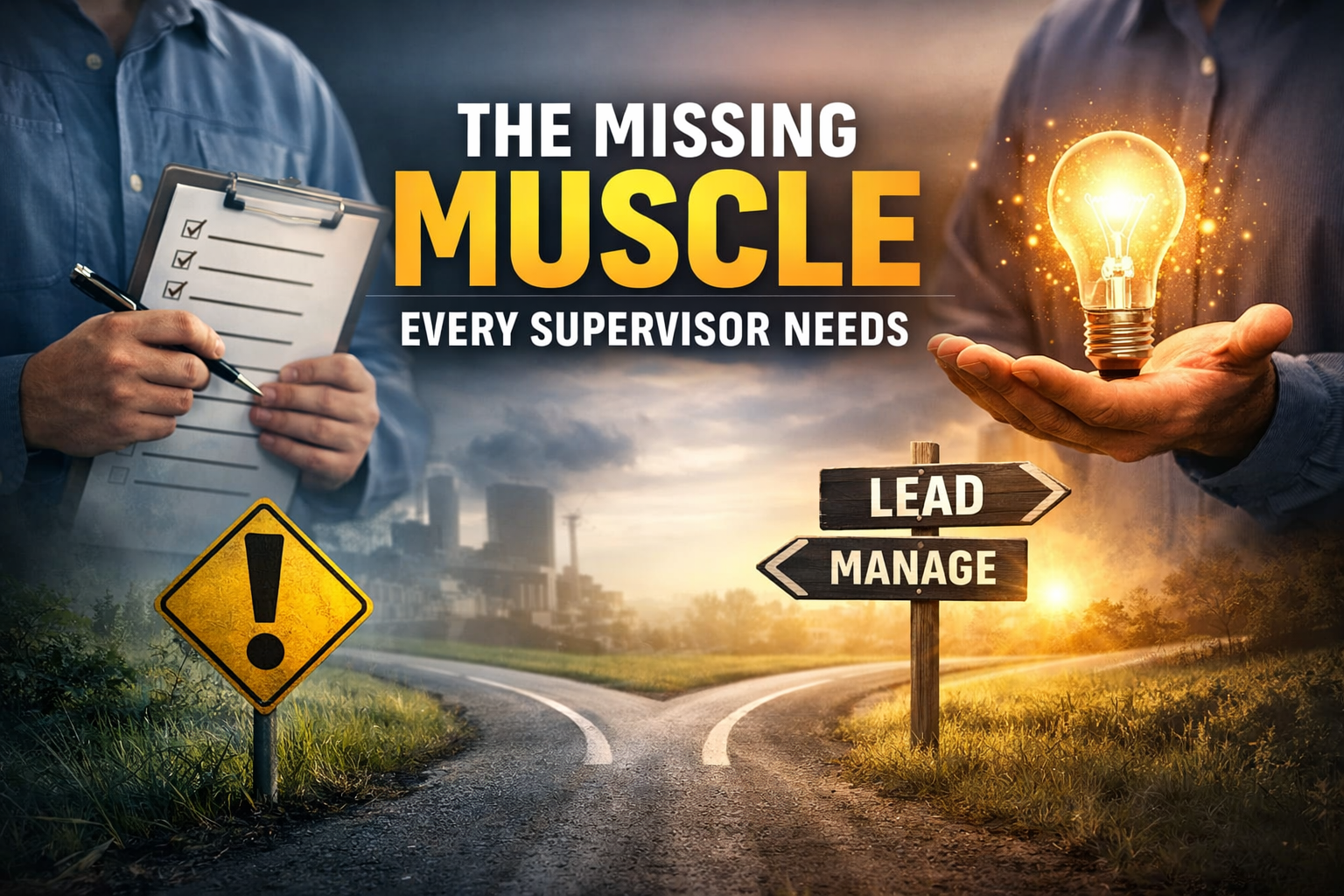
The Missing Muscle Every Supervisor Needs
Most supervisors are told to “be leaders,” but few are taught how to read the moment. Situational fluency, the ability to know when to manage and when to lead, is the missing skill that separates burned-out supervisors from those who build strong, resilient teams.
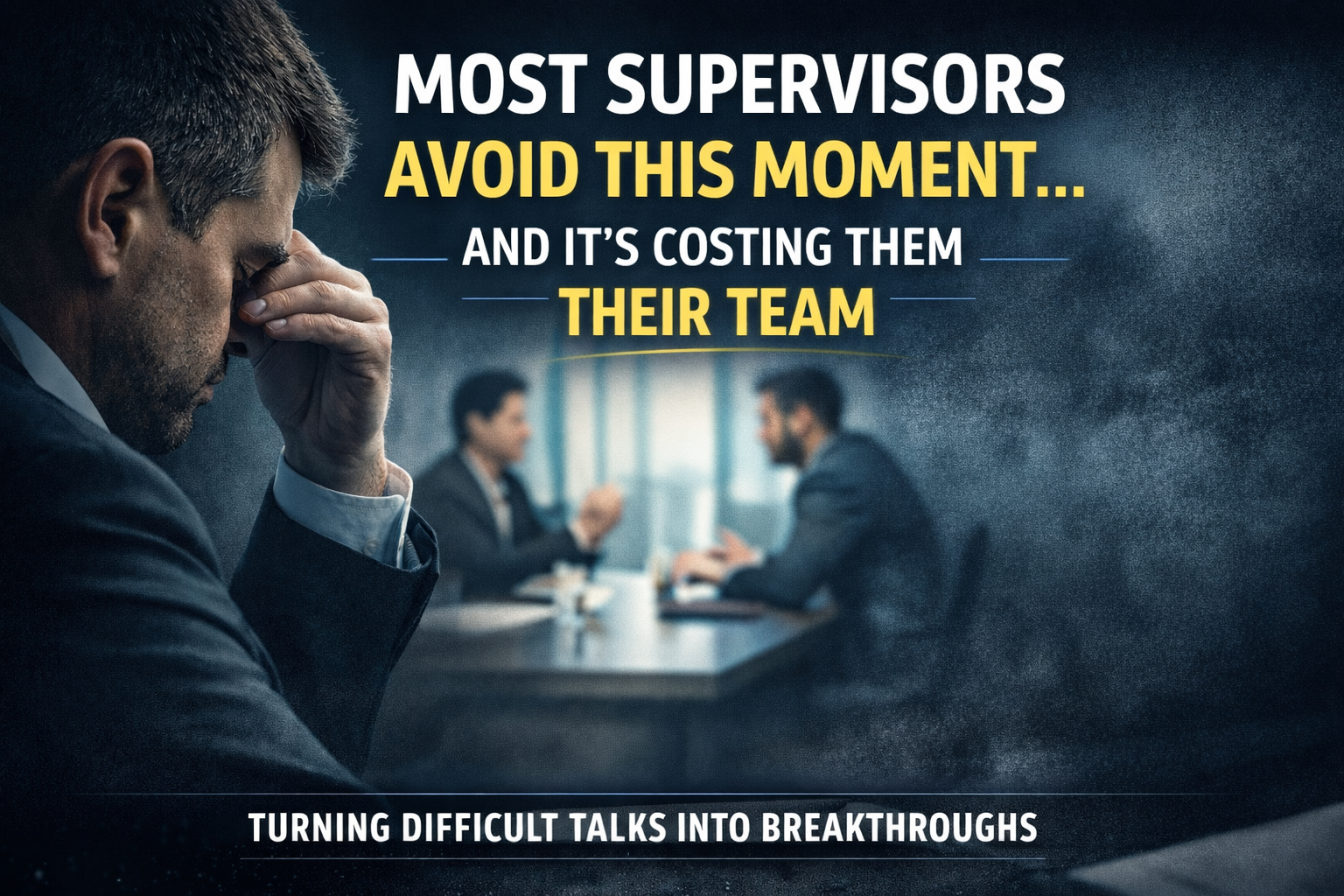
Most Supervisors Avoid This Moment
Most supervisors don’t avoid difficult conversations because they lack courage.
They avoid them because they lack a clear way to challenge without damaging trust.
In this article, John D. Harney breaks down why challenge is one of the most misunderstood skills, and how supervisors can address issues directly while still developing their people. If you supervise others, this is the moment you can’t afford to keep avoiding.

The $112,500 Question
Every burnt-out manager represents a hidden six-figure liability on your balance sheet. Before they leave, they're costing you $10,824 annually in lost productivity. When they finally quit? Replacement costs range from 100% to 200% of their salary—that's $75,000 to $200,000 per manager. With managerial turnover draining $15.4 billion from U.S. businesses annually, organizations can't afford to treat burnout as inevitable. The solution lies in developing situational fluency—helping managers know when to lead and when to manage, preventing burnout before it starts. This investment in manager development costs far less than replacing even one key leader.
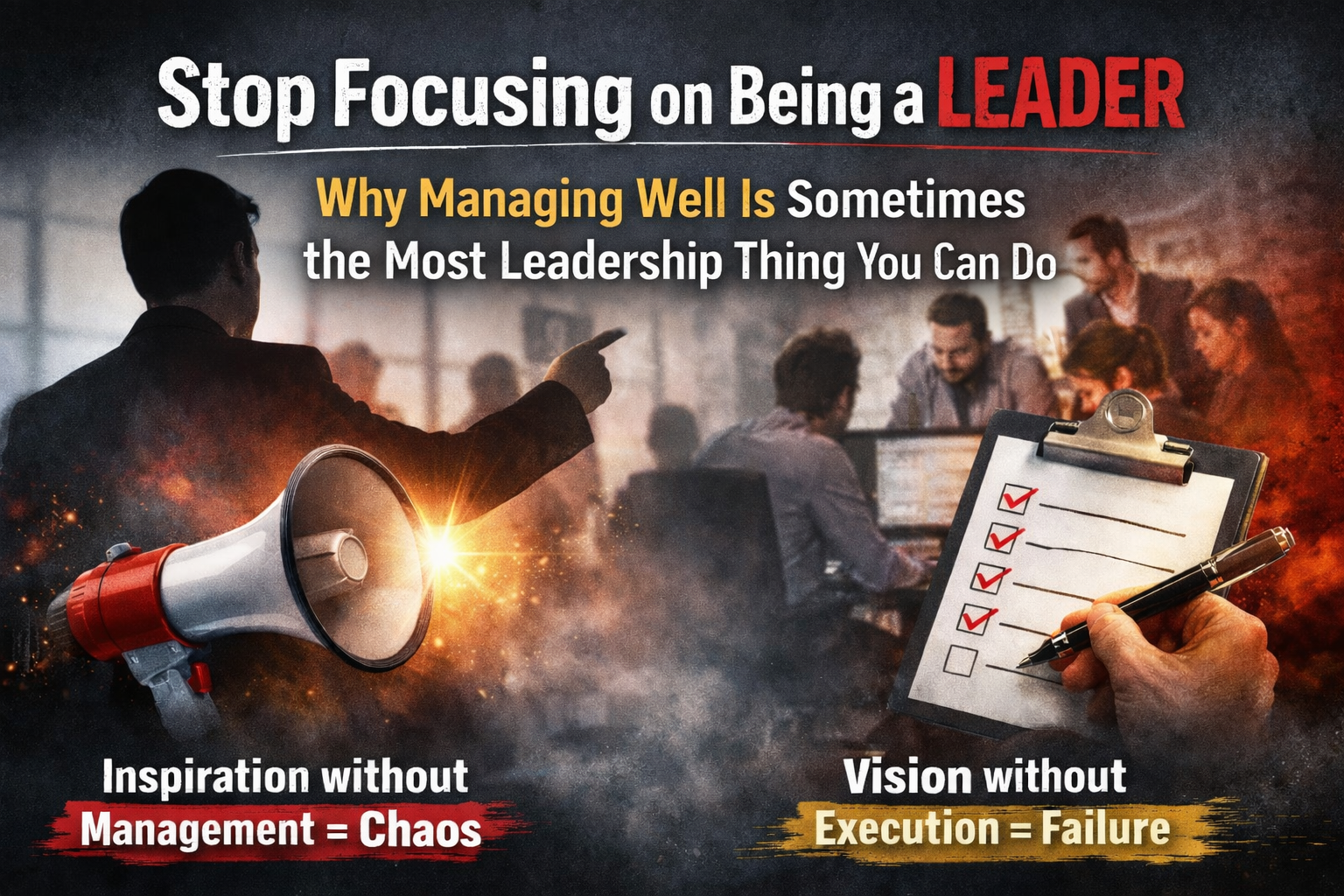
Stop focusing on Being a Leader
Stop Focusing on Being a Leader
Why Managing Well Is Sometimes the Most Leadership Thing You Can Do
Your team doesn’t need more leadership slogans. They don’t need you to work harder at inspiring them or to avoid stepping in out of fear of being labeled “controlling.”
Sometimes, they need you to actually manage.
In today’s leadership culture, management has been quietly treated as a failure—something rigid, outdated, or unsafe. The result? Supervisors hesitate when clarity is required, over-coach when decisions are needed, and wait when action matters most.
This article challenges the false choice between leadership and management and makes a practical case for situational fluency—the ability to recognize what your people need from you in the moment and respond accordingly. Because sometimes, the most leadership thing you can do is stop leading and start managing.
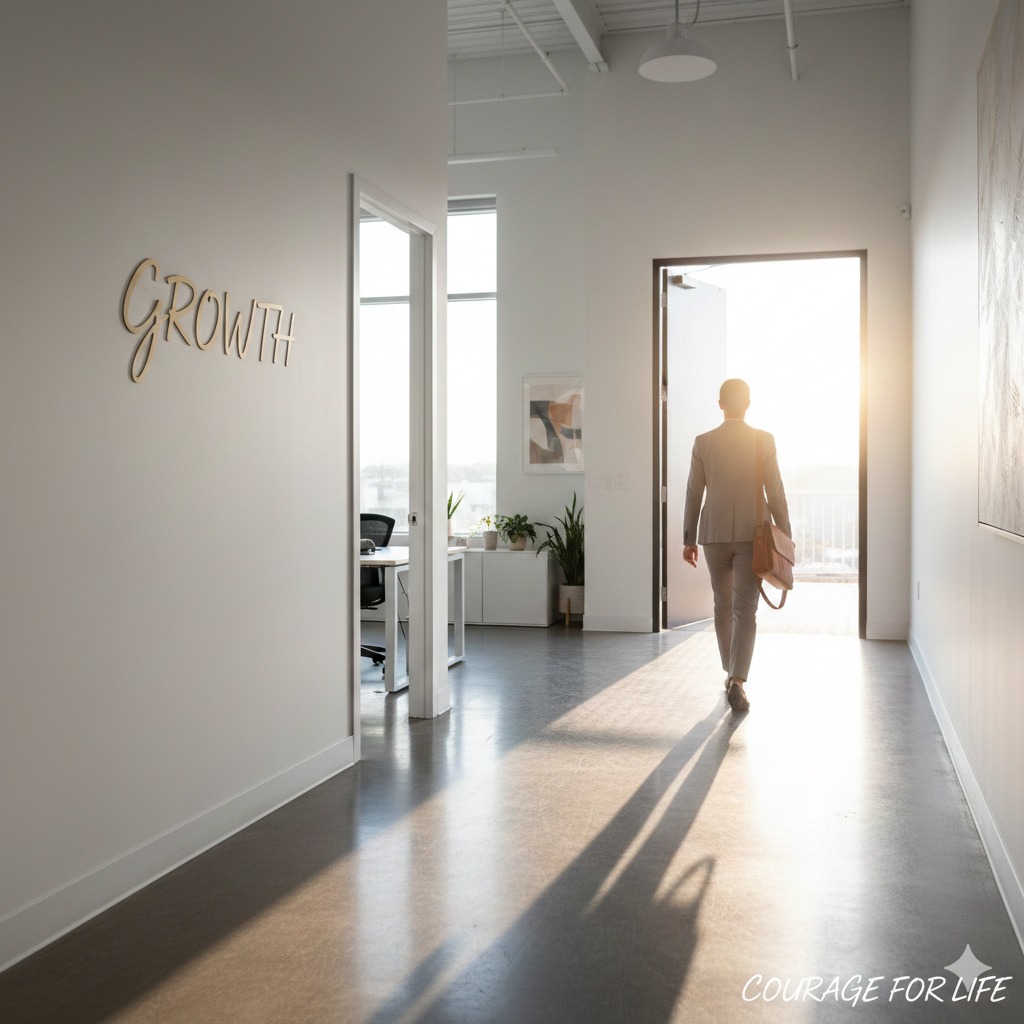
Your Best Employees Should Leave Your Team
The goal of a supervisor isn’t to make people dependent on you, it’s to make them capable without you. If your best employees never leave, it may feel like loyalty, but often it’s a sign that growth has stalled. Healthy people, develop people so well that they eventually outgrow the role you hired them for. And when that happens, it isn’t a failure. It’s proof you did your job.
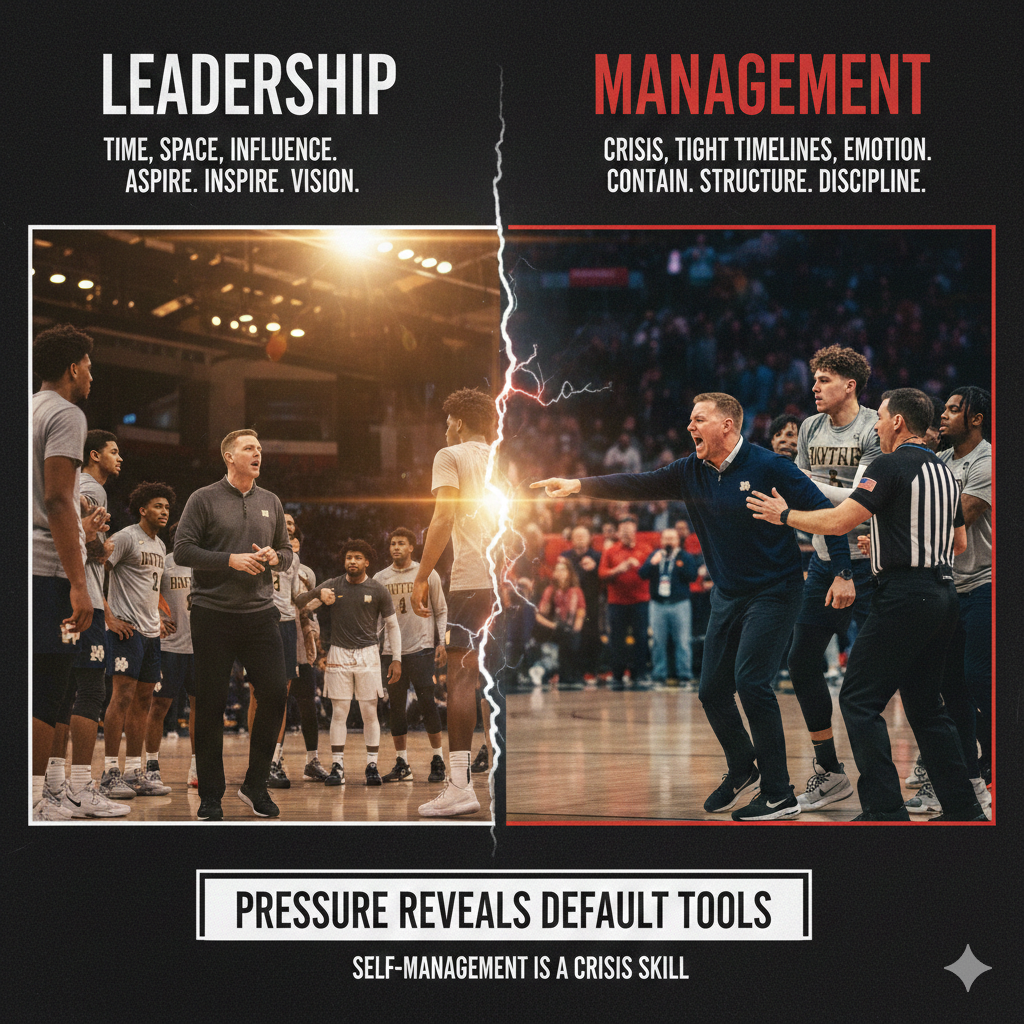
When the Leader You Strive to Be Meets the Person You Were
When pressure is highest, leadership isn’t the primary tool—management is.
In high-stakes, time-compressed moments, leaders don’t fail because they lack values or passion. They fail because they use the wrong tool. This article explores why emotional self-management is a management skill, why leadership often breaks down in crisis, and how developing situational fluency—knowing when to manage and when to lead—is the difference between reaction and winning execution.

You're Skipping the Wrong Holiday
You're treating Thanksgiving like a speed bump between Halloween and Christmas. A day to eat too much and move on. And that's exactly why you're stuck. If you're ignoring Thanksgiving, you're sabotaging your own development. Here's the uncomfortable truth nobody wants to admit.

When "Figure It Out" Becomes "I'm Out"!
There's a phrase that echoes through countless offices: "Just figure it out." On the surface, it sounds empowering—a vote of confidence in your team's abilities. But there's a tipping point where empowerment transforms into abandonment, and your best people start figuring out their exit strategy instead.
Watch what happens when someone repeatedly hears "figure it out": They begin energized by the autonomy, feeling trusted and proud. But months later, when questions arise that Google can't answer and they need real guidance, "figure it out" starts to feel less like empowerment and more like being set adrift. Eventually, they figure something out, all right—that their growth matters more than their current role, and if the company won't invest in it, they'll find one that will.
The most capable professionals still need guidance, support, and investment in their growth. When leaders consistently default to "figure it out" as their primary development strategy, they're not building resilience—they're building resentment. And in today's talent market, the companies that figure out how to develop their people are the ones that get to keep them.
Read the full article to discover:
The real costs when talented employees leave
How to create "structured autonomy" that develops rather than abandons
Specific strategies for building a development culture that retains top talent
Questions every leader should ask themselves about their development approach
Because when your people grow, your business grows—and everyone figures out they're exactly where they want to be.

An Example of Courageous Succession
True impact isn't about being irreplaceable; it’s about recognizing the responsibility of laying a foundation that lasts.

The Pursuit of happiness might be killing you
We’ve been told that happiness is the ultimate goal—that if we’re not constantly smiling, something’s wrong. But what if the constant chase for happiness is actually making us more anxious, more self-absorbed, and less resilient?
Happiness is a moment, not a lifestyle. And when we treat it like a destination, we end up lost—numbing our pain, avoiding discomfort, and missing out on deeper, richer things like purpose, character, and real joy.
You weren’t made to feel good all the time. You were made to live for something greater.

Building your bench
What is a “Bench” in business?

